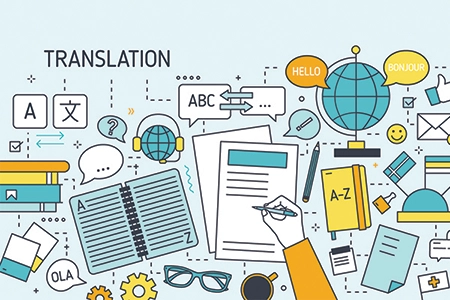KFC: A Finger-Lickin’ Translation Mistake in China
When KFC introduced its iconic “Finger-lickin’ good” slogan in China in the 1980s, the fast-food giant got a taste of how translation mistakes can backfire. Instead of making people’s mouths water, the slogan’s Mandarin translation read, “Eat your fingers off.” Hardly an appetising message for those looking to enjoy some fried chicken!
This unfortunate mistranslation not only confused KFC’s new customers but also cast a strange light on the brand’s image in China. Thankfully, the company quickly realised the error and corrected it before too much damage was done. However, the initial mistranslation caused KFC to spend a significant amount on revised marketing efforts to restore consumer confidence.
Lesson Learned: Precision is everything when it comes to translating slogans, especially in markets with vastly different languages and cultural contexts. A freelance translator who understands both linguistic accuracy and cultural relevance can help companies avoid such costly blunders. This incident is another reminder that translation mistakes can distort a brand’s message in ways you wouldn’t expect.
Parker Pen: A Translation Mistake That Made an Unexpected Impression
When Parker Pen launched its marketing campaign in Latin America, they wanted to assure customers that their pens were reliable. The intended slogan was “It won’t leak in your pocket and embarrass you.” Unfortunately, their translation team made a critical error, translating “embarrass” as “embarazar,” which in Spanish means “to impregnate.” The result? Parker’s slogan now read, “It won’t leak in your pocket and make you pregnant.” Quite the unintended promise for a ballpoint pen!
This embarrassing mistake not only baffled consumers but also damaged the brand’s credibility in the region. Parker Pen had to scramble to fix the error and spent a significant amount of money on a new marketing campaign to undo the damage. Needless to say, this was not the kind of lasting impression the brand was aiming for.
Lesson Learned: When it comes to translation, accuracy is crucial, especially with false friends—words that sound similar but have very different meanings. A professional translator familiar with these nuances could have spared Parker from this costly gaffe. Once again, we see how translation mistakes can turn a simple product promotion into an international joke.

Expert English-Turkish Translation Services at Your Fingertips
Click the “Get a Translation Quote” button now. Let our certified English-Turkish translators handle your translation needs with expertise and cultural insight.
The “Flight Risk” Translation Mistake
In a Turkish news report covering a high-profile legal case, a mistranslation of “flight risk” led to widespread confusion. Instead of translating “flight” as “kaçış” (fleeing), which was contextually correct, news outlets translated it as “uçuş” (flying), resulting in the phrase “uçuş riski” (risk of flying). Although this translation mistake didn’t cause any significant harm, it highlights how rushed work can lead to embarrassing and confusing errors. For more details, you can read the full blog post here.
Final Words on Translation Mistakes
These examples of translation mistakes serve as cautionary tales for companies looking to expand globally. From offensive slogans to baffling promises, even the biggest brands can fall victim to simple translation errors. Whether you’re managing a marketing campaign or launching a new product, hiring a skilled freelance translator can make all the difference. Accuracy and cultural awareness are key to ensuring that your message resonates with the right audience—and doesn’t result in an expensive misunderstanding. Translation mistakes can be costly, so choose your words—and your translators—wisely.
